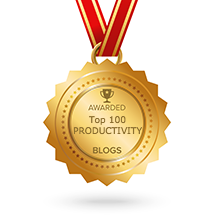Builder
|
Opportunist
|
Specialist
|
Innovator
|
DNA Type
|
Strengths
|
Weaknesses
|
Builder
|
- Apply the “golden threads of business” to build systems and highly scalable selling ventures
- A majority of the time is spent working on the business because he/she has people and system who work in the business
- Natural-born leaders with potential investors, employees, and customers drawn to their vision and brand
|
- Work./life balance is generally out-of-balance for an extended period of time, leading to collateral damage
- If left unchecked, both home and business relationships become strained and fractured
- Find it extremely hard to ask for help, even harder to back down from an disagreement
|
Opportunist
|
- Very high work ethic when focused on a particular venture, 10-18 hour day don’t scare them
- Being optimistic towards life, allows him/her to shake off short-term setbacks which gives a market advantage against pessimists
- Very coachable especially when entering a new industry and seeks out top producers to learn from
|
- Saying NO to opportunities is very hard, will continue to cost money time, headaches if left unchecked
- Doing due diligence on an opportunity is painful, sees analytical people as “slow” and “closed-minded”
- Tend to juggle too many income opportunities, it is hard for them to pick one venture and focus on it exclusively.
|
Specialist
|
- Study to excel n their trade and invest in continue education which gives an advantage over some other types
- Being relatively risk-averse keeps him/her from taking unnecessary risks when unrelated business opportunities come up
- Recognizes the importance of personal relationships and puts emphasis on building healthy relationships with clients and employees
|
- Gets stuck in the box when it comes to growth strategy, this may prevent the venture from achieving true potential
- It is hard to transition from an hourly-rate mindset to a leveraged distributions mindset which means having to staff up for the company to grow
- Tend not to go outside their industry for expertise and advice, this safe strategy prevents them from accessing “game changing” strategies
|
Innovator
|
- Pipeline is rich and abundant; given enough time and resources, they can have several new products
- He/she cares much more about quality then profits, this can create fanatical customer loyalty for the product/brand
- Expertise makes them credible in the marketplace; investors, employees, and customers are drawn to participate with them
|
- Business development is no a strong suit and if left unchecked, the product/service could die
- Tend to lack a “BS” filter so smooth talkers could convince them to give up unusual control in the company or technology
- Tend to carry other people’s burdens including employees and customers; if left unchecked can become a source of stress and emotional fatigue
|
See also To Be Productive blog Disclaimer at bottom of site.











 This work is licensed under a
This work is licensed under a
No comments:
Post a Comment